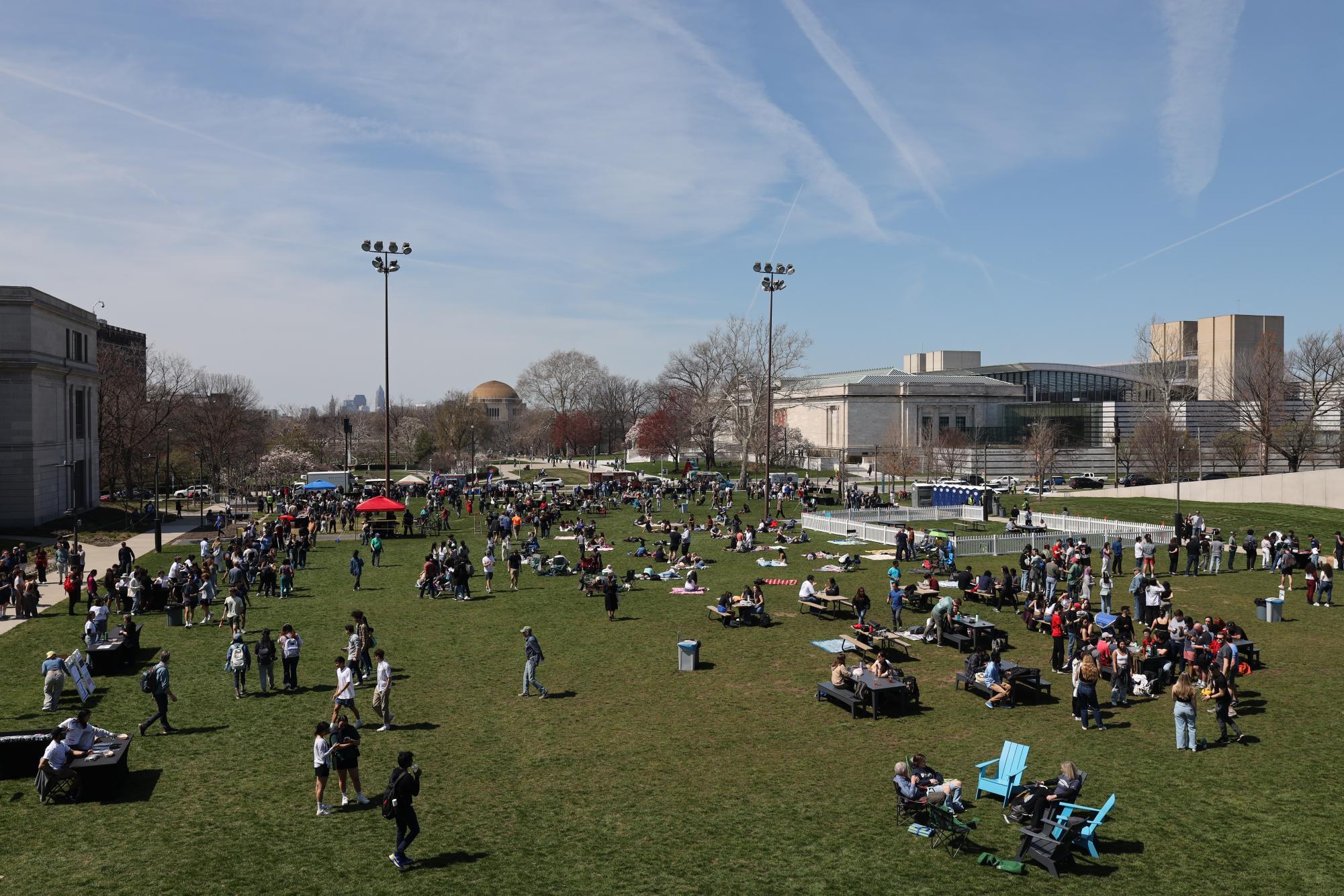April 8, 2024, was a special day for many in Cleveland, not just because Case Western Reserve University gave the rare day off but also because we were fortunate enough to witness one of the most spectacular feats of mother nature: a total solar eclipse. The next day, we returned to our mundane school routines. But for some reason, the solar eclipse really resonated with me.
Then it hit me: The eclipse was so unforgettable because it tapped into the deepest parts of my soul, forcing me to confront powerful sentiments that I normally never experience. Frankly, our society would be more fulfilled if we tried to embody parts of the solar eclipse “psyche” more frequently.
I remember feeling a strange and queasy anticipation as the sky gradually turned darker and the atmosphere became still and chilly, both telltale signs of what was to come. Watching the moon swallow the sun through my glasses was so hauntingly beautiful and awe-inducing that I could only focus on the solar eclipse. Ruminating over yesterday and worrying about tomorrow or the days after that was immaterial.
Surprisingly, I wasn’t going through the motions like usual but actually living in the moment. My brain and body were more attuned to the environment around me.
People always say to live in the moment and savor the little things, but I never understood what that meant until now. Taking this idea a step further, so many of us are hyper-focused on what happens five to 10 years down the road—say, getting into grad school or having a well-paying job in the industry of our dreams—and are constantly assessing what we need to do now to achieve our carefully planned out future, creating a maelstrom of stress. By always thinking so far ahead, we forget to treasure what we’re currently experiencing like the questionable dining hall food, our friends and family or the joy of our extracurricular activities. We must start searching for and cherishing the beauty within every moment, even if they seem insignificant.
Experiencing an event on a celestial scale also compelled me to reassess my overall perspective. We were made utterly powerless against nature; ultimately, we had no control over when or how the eclipse would happen. We had to take it in stride.
Likewise, even though we often craft elaborate life plans, many times unexpected events occur. It is better to just go with the flow and take what comes. As I’ve found from personal experience, everything usually works out in the end, maybe even better than originally intended.
Additionally, witnessing such a large-scale event forces us to think beyond ourselves. Combined with the timelessness and awe of a solar eclipse, we can form a profound and fundamental connection with other people, even strangers, over witnessing something so much bigger than all of us. I can personally attest to feeling that way. During the eclipse, I felt an electric surge of energy when thinking about how I shared this special moment with parents, friends, professors and even total strangers.
There’s actually a term for the phenomenon I’ve described, which is “collective effervescence,” coined by sociologist Émile Durkheim. Essentially, when a group of people join together to participate in a large shared experience, there is a special collective harmony and “electricity” that ensues. This “electricity” causes certain emotions, such as excitement, to go into overdrive. This uplifting energy enables us to think more selflessly.
This matters because practicing selflessness and togetherness is something we as a society could do more often. Nowadays, people divide themselves along various lines of political leanings, social background and other affiliations, and there is minimal tolerance for anything different. The solar eclipse was a rare moment in recent history where our differences were irrelevant in the grand scheme of things. It was heartwarming to see that there was still something everyone agreed on: how wonderful it was to witness this spectacle of nature.
However, we should not wait until the next eclipse to experience or practice this sort of selflessness connection. There are obvious ways to accomplish this—joining any sort of group activity such as sports, the arts or competitive activities such as the Case Rocket Team.
I have a more radical proposal. Many people are quick to point out the issues wrong in today’s world, such as climate change or a broken political system. Maybe we could recreate our own version of collective effervescence, one which gives our society the collective strength and determination to confront these issues that are much bigger than all of us.
It’s on us to come together and work toward the greater goal of making the world a better place than when we entered it, even despite our differences. Future generations are relying on us to achieve that, and that can’t be done without employing the solar eclipse psyche.


